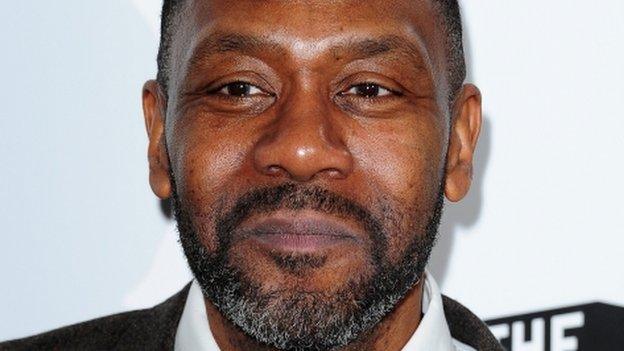Is the media industry sufficiently diverse?
- Published
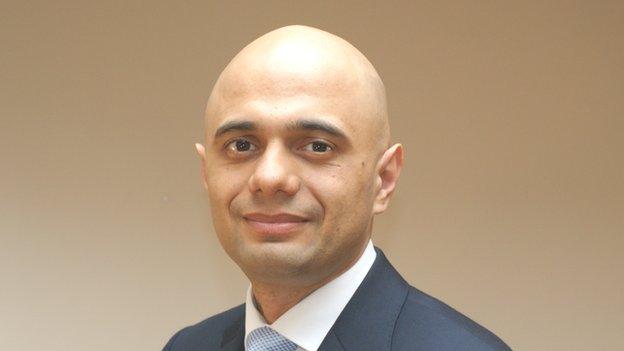
Sajid Javid is the first British Pakistani MP to lead a government department
Comedian Lenny Henry has led the campaign for greater diversity in the media this year, and so grabbed the opportunity to speak to Culture Secretary Sajid Javid on the issue.
"I didn't think about media as a career opportunity," Culture Secretary Sajid Javid told Lenny Henry, the guest editor of Radio 4's Today programme.
"In fact, I joke, but it's a true story - the closest I ever came to working in the television industry was when my careers adviser, when I was 16, said that I should think about becoming a television repairman."
"There's nothing wrong with it but I'm a bit worried about how much work I would get nowadays if I just specialised in that."
But the TV repair industry's loss was the banking industry's gain.
Today, after a career that includes a spell as the youngest vice-president of Chase Manhattan Bank and managing director of Deutsche Bank, Mr Javid finds himself at the heart of the UK's media industry.
'Remarkable achievements'
The man some have tipped as a future Conservative leader is insistent there should be better representation for black, Asian and minority ethnic(BAME) people in the creative industries.
"You have to look at numbers to get to the bottom of this," he said.
Around 6% of people working in the media industry as a whole are from ethnic minorities as opposed to 14% in the UK population as a whole.
"We've had some remarkable achievements of ethnic talent but that doesn't take away from the fact that it's not enough."
Mr Javid refused to be drawn on his thoughts about any commitments to BAME representation which might feature in the BBC Charter, due for renewal in 2016/17, but said the corporation had "woken up to this more than ever before" and some recent commitments were really compelling.
He was pleased other organisations like BSkyB, ITV and Channel 4 also on board.
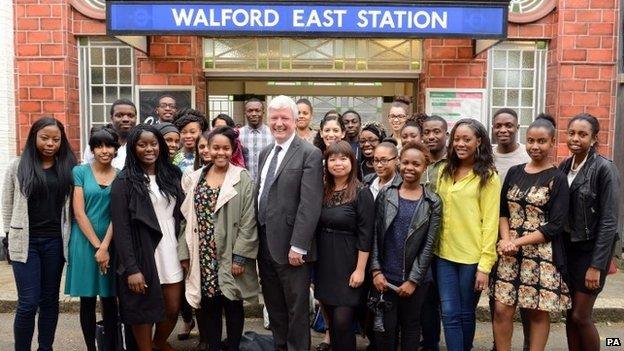
Lenny Henry has previously criticised the BBC's plans to increase on-screen diversity by 5% in the next three years.
'Appalling'
In March 2014 Lenny Henry told an audience at Bafta that funds should be set aside to increase diversity in the broadcasting industry.
He said the percentage of BAME people in the creative industries was "appalling... because the majority of our industry is based around London where the black and Asian population is 40%".
The situation behind the camera was also "patchy", he said.
Mr Javid said Henry's comments, plus interventions by the likes of the Creative Diversity Network, had led to "a number of big players" - including BSkyB and the BBC - pledging to increase BAME numbers both in front of, and behind, the camera.
But the culture secretary was wary about the imposition of any official target or quota for BAME representation on the media industry.
"You always run this risk that someone might try to fill their [quota] just for the sake of filling it, without actually driving the talent" - a point with which Henry agreed.

Lenny Henry says funds should be set aside to boost the presence of BAME people in the broadcasting industry.
"It's not just about having the black face or the brown face. It's about building a sustainable pipeline of talent," Mr Javid said.
"I don't want to see an environment where people are just being put there because they have the right colour face. I want them to be there because they have the talent that that organisation needs.
"And that means organisations need to go hunting for that talent."
'Not enough applying'
Some organisations, he said had positive action programmes in communities where there were higher proportions of BAME communities.
"It should always be about choosing the best person, but making sure that everyone gets a chance and encouraging them to apply.
"The talent is out there but sometimes I get frustrated by not seeing enough people from that background actually making an application."
And he contrasted the situation in the media to that in banking. "The bank that I worked in, you'd walk around the trading floor, the largest trading floor in Europe, and it's like walking round the United Nations.
"I think the more diverse an organisation is, whether it's public or private, the more reflective it is of society, the better it is for its bottom line."
Lenny Henry guest edits BBC Radio 4's Today programme on Tuesday 30 December, 06:00-09:00 GMT - or listen again online.
- Published18 March 2014
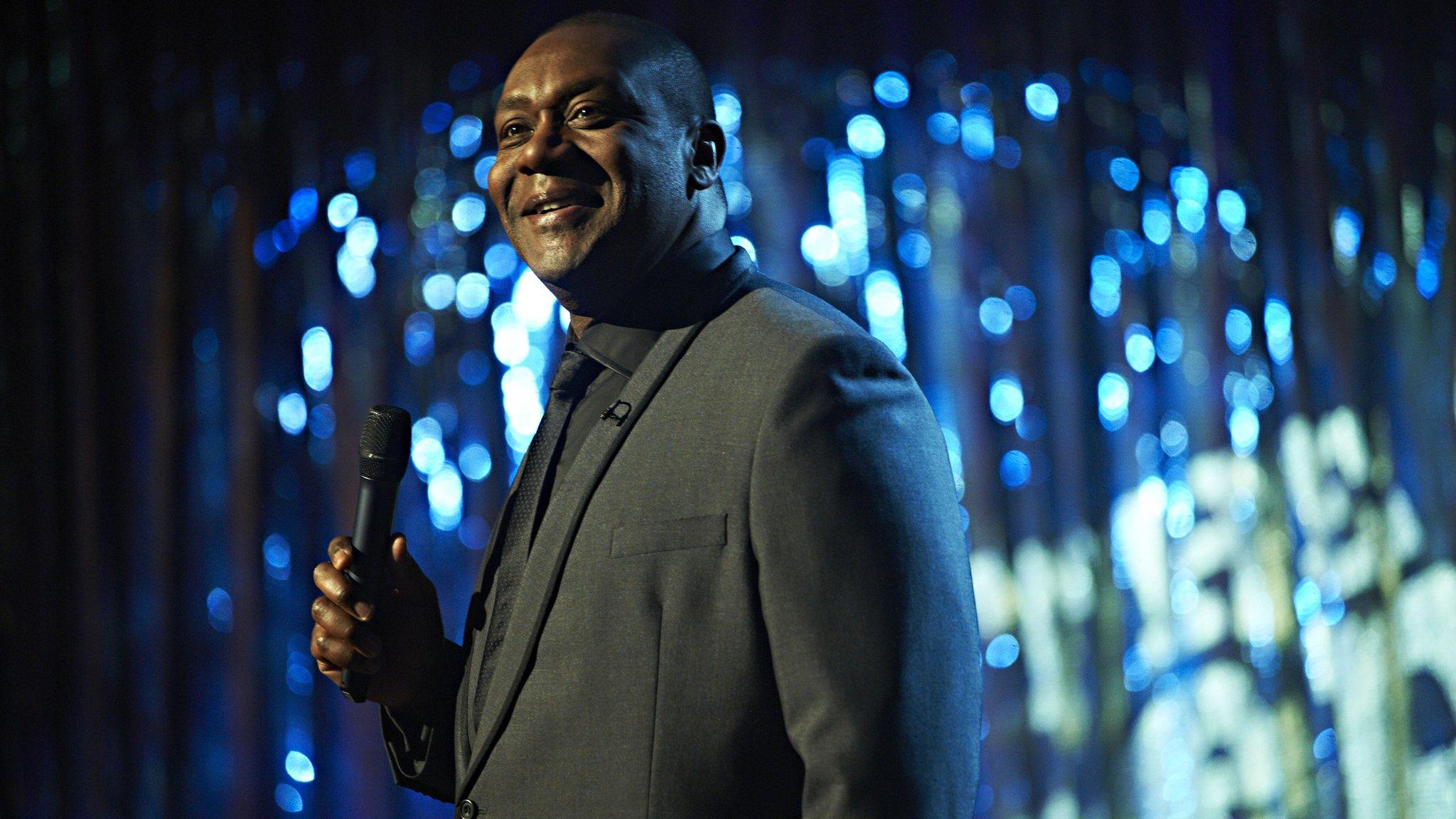
- Published24 June 2014
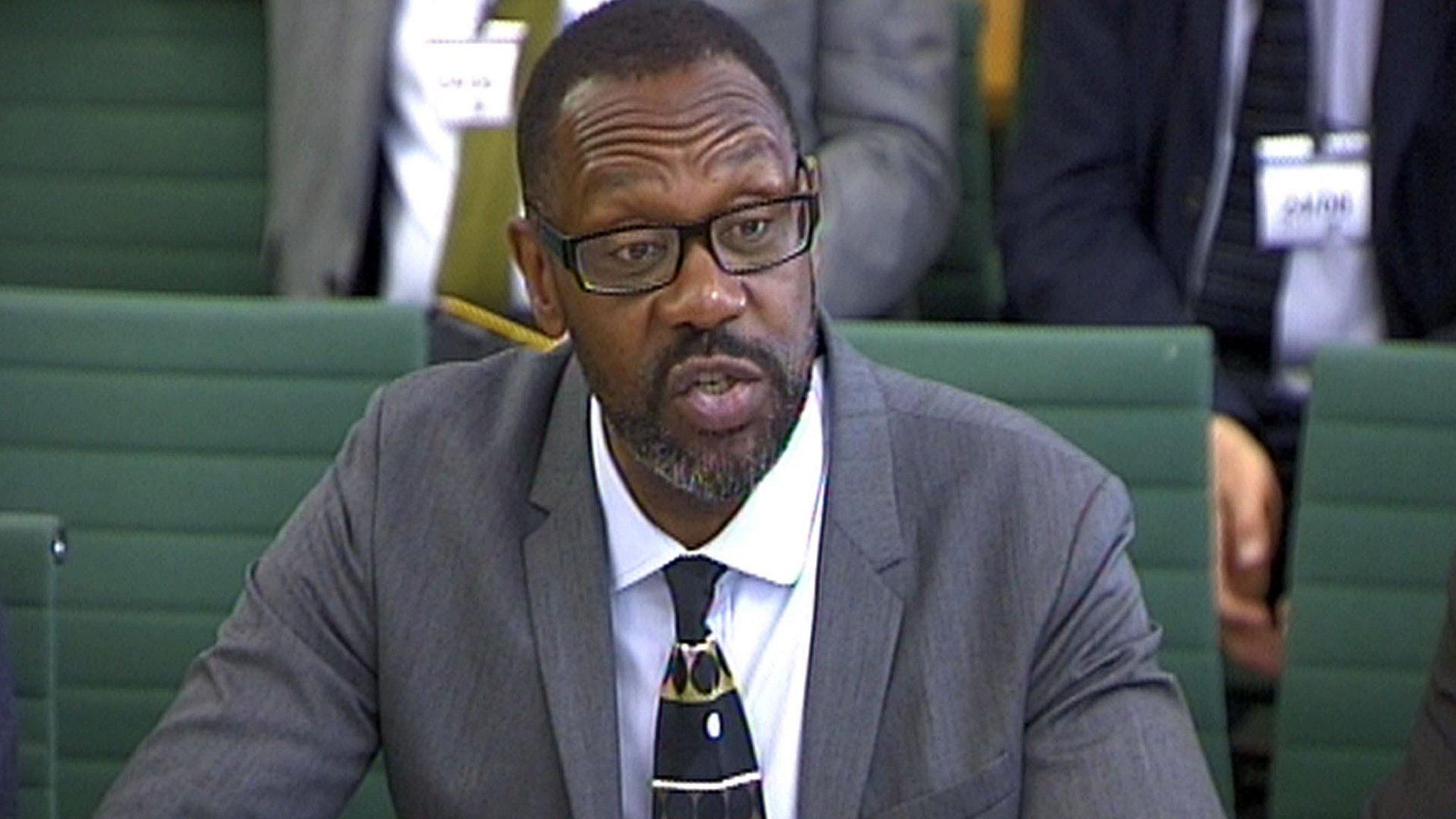
- Published29 November 2014
